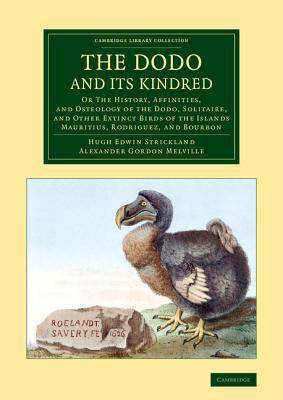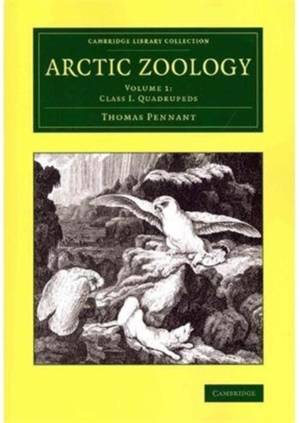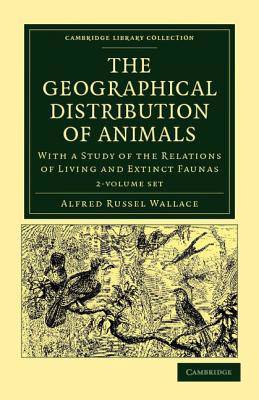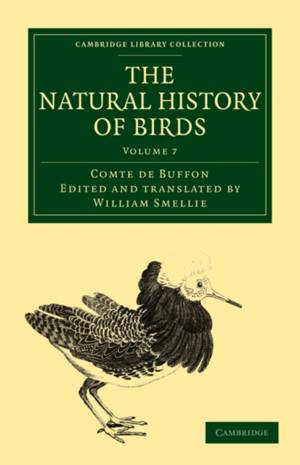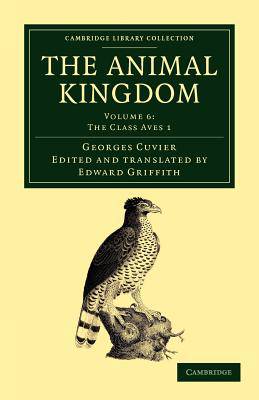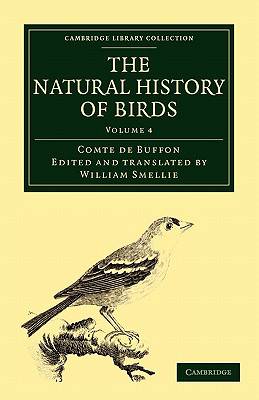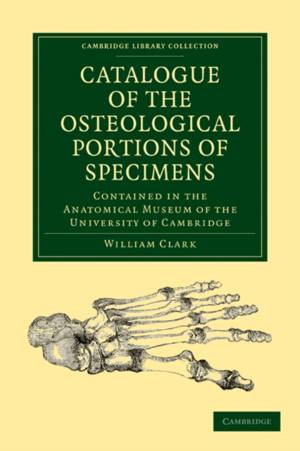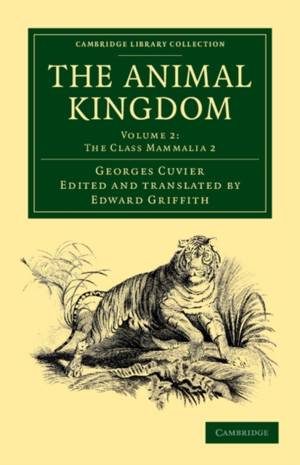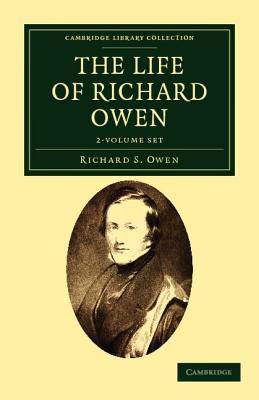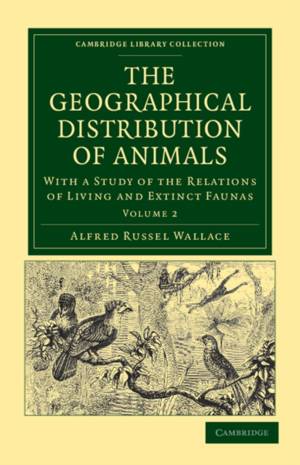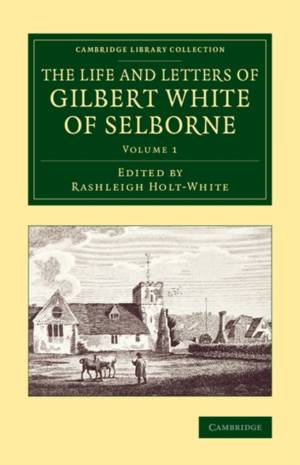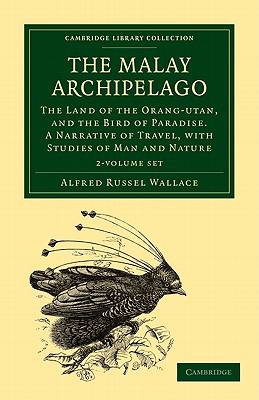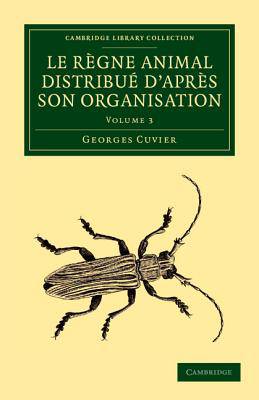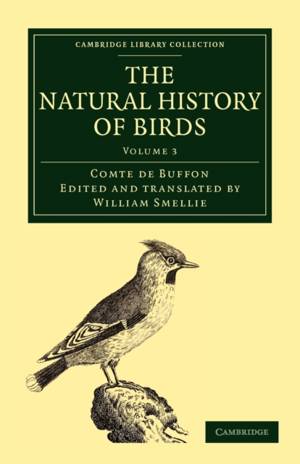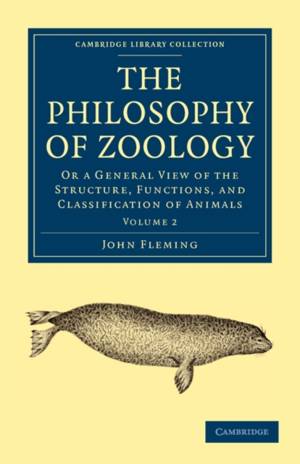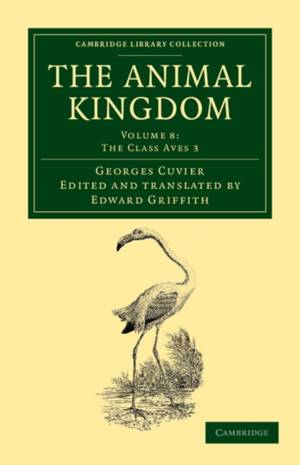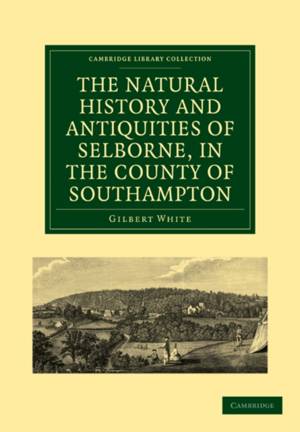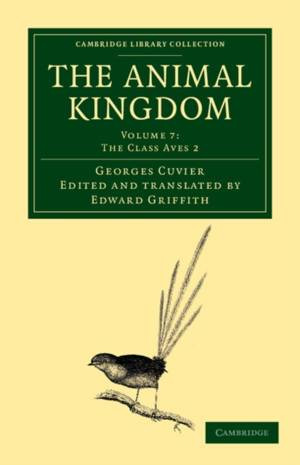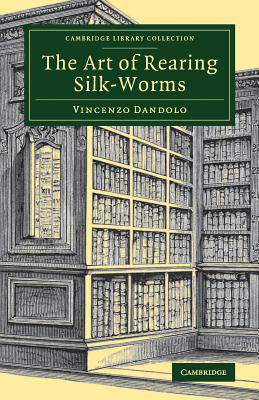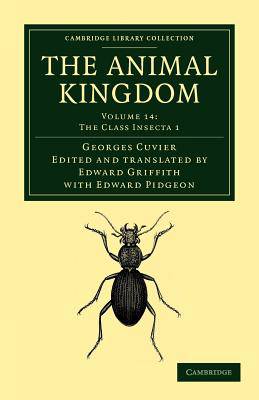
- Retrait gratuit dans votre magasin Club
- 7.000.000 titres dans notre catalogue
- Payer en toute sécurité
- Toujours un magasin près de chez vous
- Retrait gratuit dans votre magasin Club
- 7.000.0000 titres dans notre catalogue
- Payer en toute sécurité
- Toujours un magasin près de chez vous
-
On the Anatomy of Vertebrates 3 Volume Set
Richard Owen
- Livre | Cambridge Library Collection - Zoology
- Published from 1866-8, this highly-illustrated three-volume set gives a thorough overview of vertebrate anatomy. Volume 1 focuses on fishes and reptil... Savoir plus
173,45 €Livraison sous 1 à 4 semaines173,45 €Livraison sous 1 à 4 semaines -
The Dodo and Its Kindred
Hugh Edwin Strickland, Alexander Gordon Melville
- Livre broché | Anglais | Cambridge Library Collection - Zoology
- Well versed in natural history, particularly geology and ornithology, Hugh Edwin Strickland (1811-53) became fascinated by the dodo and mankind's infl... Savoir plus
66,45 €Livraison 2 à 3 semaines66,45 €Livraison 2 à 3 semaines -
Arctic Zoology 2 Volume Set
Thomas Pennant
- Livre | Anglais | Cambridge Library Collection - Zoology
- In the 'Advertisement' to this 1784 two-volume work, Thomas Pennant (1726-98), zoologist and traveller, explains that his original intention was to re... Savoir plus
86,95 €Livraison sous 1 à 4 semaines86,95 €Livraison sous 1 à 4 semaines -
The Geographical Distribution of Animals 2 Volume Set
Alfred Russel Wallace
- Livre | Anglais | Cambridge Library Collection - Zoology
- Alfred Russel Wallace (1823-1913) was a British biologist whose theories of evolution, arrived at independently, caused Darwin to allow their famous j... Savoir plus
113,45 €Livraison 1 à 2 semaines113,45 €Livraison 1 à 2 semaines -
The Natural History of Birds
Buffon
- Livre broché | Anglais | Cambridge Library Collection - Zoology
- Georges-Louis Leclerc, Comte de Buffon (1707-88), was a French mathematician who was considered one of the leading naturalists of the Enlightenment. A... Savoir plus
127,45 €Livraison 2 à 3 semaines127,45 €Livraison 2 à 3 semaines -
The Animal Kingdom
Georges Cuvier
- Livre broché | Anglais | Cambridge Library Collection - Zoology
- Georges Cuvier (1769-1832), made a peer of France in 1819 in recognition of his work, was perhaps the most important European scientist of his day. Hi... Savoir plus
120,95 €Livraison 2 à 3 semaines120,95 €Livraison 2 à 3 semaines -
The Natural History of Birds
Buffon
- Livre broché | Anglais | Cambridge Library Collection - Zoology
- Georges-Louis Leclerc, Comte de Buffon (1707-88), was a French mathematician who was considered one of the leading naturalists of the Enlightenment. A... Savoir plus
112,95 €Livraison 2 à 3 semaines112,95 €Livraison 2 à 3 semaines -
Catalogue of the Osteological Portions of Specimens Contained in the Anatomical Museum of the University of Cambridge
William Clark
- Livre broché | Anglais | Cambridge Library Collection - Zoology
- William Clark was Professor of Anatomy at Cambridge for nearly fifty years, collecting many specimens of bones for use in the study of comparative ana... Savoir plus
23,95 €Livraison 1 à 2 semaines23,95 €Livraison 1 à 2 semaines -
The Animal Kingdom
Georges Cuvier
- Livre broché | Anglais | Cambridge Library Collection - Zoology
- Georges Cuvier (1769-1832), made a peer of France in 1819 in recognition of his work, was perhaps the most important European scientist of his day. Hi... Savoir plus
120,95 €Livraison 2 à 3 semaines120,95 €Livraison 2 à 3 semaines -
The Life of Richard Owen 2 Volume Set
Richard S Owen
- Livre | Anglais | Cambridge Library Collection - Zoology
- Richard Owen, F.R.S. (1804-92) was a controversial and influential palaeontologist and anatomist. Originally from Lancaster, he studied medicine at th... Savoir plus
83,95 €Livraison 1 à 2 semaines83,95 €Livraison 1 à 2 semaines -
The Naturalist on the River Amazon
Henry Walter Bates
- Livre broché | Anglais | Cambridge Library Collection - Zoology
- First published in 1863, this is a first-hand account of Henry Walter Bates' eleven-year expedition to the river Amazon in 1848, during which he disco... Savoir plus
40,95 €Livraison 1 à 2 semaines40,95 €Livraison 1 à 2 semaines -
The Geographical Distribution of Animals
Alfred Russel Wallace
- Livre broché | Anglais | Cambridge Library Collection - Zoology
- Alfred Russel Wallace (1823-1913) was a British biologist and explorer whose theories of evolution, arrived at independently, caused Darwin to allow t... Savoir plus
127,45 €Livraison 2 à 3 semaines127,45 €Livraison 2 à 3 semaines -
Le Règne Animal Distribué d'Après Son Organisation
Georges Baron Cuvier
- Livre broché | Français | Cambridge Library Collection - Zoology
- French zoologist and naturalist Georges Cuvier (1769-1832), one of the most eminent scientific figures of the early nineteenth century, is best known ... Savoir plus
106,45 €Livraison 2 à 3 semaines106,45 €Livraison 2 à 3 semaines -
The Life and Letters of Gilbert White of Selborne
- Livre broché | Anglais | Cambridge Library Collection - Zoology
- Published in 1901, this illustrated two-volume biography of the renowned English naturalist Gilbert White (1720-93) presents a thorough account of his... Savoir plus
80,95 €Livraison 2 à 3 semaines80,95 €Livraison 2 à 3 semaines -
The Malay Archipelago 2 Volume Set
Alfred Russel Wallace
- Livre | Anglais | Cambridge Library Collection - Zoology
- Alfred Russel Wallace (1823-1913) was a British naturalist who is best remembered as the co-discoverer, with Darwin, of natural selection. His extensi... Savoir plus
106,45 €Livraison 1 à 2 semaines106,45 €Livraison 1 à 2 semaines -
Le Regne Animal Distribue D'Apres Son Organisation - Volume 3
Georges Baron Cuvier
- Livre broché | Anglais | Cambridge Library Collection - Zoology
- French zoologist and naturalist Georges Cuvier (1769-1832), one of the most eminent scientific figures of the early nineteenth century, is best known ... Savoir plus
125,95 €Livraison 2 à 3 semaines125,95 €Livraison 2 à 3 semaines -
The Natural History of Birds
Buffon
- Livre broché | Anglais | Cambridge Library Collection - Zoology
- Georges-Louis Leclerc, Comte de Buffon (1707-88), was a French mathematician who was considered one of the leading naturalists of the Enlightenment. A... Savoir plus
117,95 €Livraison 2 à 3 semaines117,95 €Livraison 2 à 3 semaines -
The Philosophy of Zoology
John Fleming
- Livre broché | Anglais | Cambridge Library Collection - Zoology
- John Fleming (1785-1857) was a minister of the Church of Scotland, but in his time at the University of Edinburgh he had also studied geology and zool... Savoir plus
50,45 €Livraison 1 à 2 semaines50,45 €Livraison 1 à 2 semaines -
The Animal Kingdom
Georges Cuvier
- Livre broché | Anglais | Cambridge Library Collection - Zoology
- Georges Cuvier (1769-1832), made a peer of France in 1819 in recognition of his work, was perhaps the most important European scientist of his day. Hi... Savoir plus
120,95 €Livraison 2 à 3 semaines120,95 €Livraison 2 à 3 semaines -
The Animal Kingdom
Georges Cuvier
- Livre broché | Anglais | Cambridge Library Collection - Zoology
- Georges Cuvier (1769-1832), made a peer of France in 1819 in recognition of his work, was perhaps the most important European scientist of his day. Hi... Savoir plus
141,95 €Livraison 2 à 3 semaines141,95 €Livraison 2 à 3 semaines -
The Natural History and Antiquities of Selborne, in the County of Southampton
Gilbert White
- Livre broché | Anglais | Cambridge Library Collection - Zoology
- Gilbert White (1720-1793) published his Natural History and Antiquities as one volume in 1789. Both works consist of a series of letters written by Wh... Savoir plus
117,95 €Livraison 2 à 3 semaines117,95 €Livraison 2 à 3 semaines -
The Animal Kingdom
Georges Cuvier
- Livre broché | Anglais | Cambridge Library Collection - Zoology
- Georges Cuvier (1769-1832), made a peer of France in 1819 in recognition of his work, was perhaps the most important European scientist of his day. Hi... Savoir plus
133,95 €Livraison 2 à 3 semaines133,95 €Livraison 2 à 3 semaines -
The Art of Rearing Silk-Worms
Vincenzo Dandolo
- Livre broché | Anglais | Cambridge Library Collection - Zoology
- This 1825 translation was published as part of a project to introduce the culture of silkworms into Britain and especially into Ireland, as Dandolo's ... Savoir plus
82,45 €Livraison 2 à 3 semaines82,45 €Livraison 2 à 3 semaines -
The Animal Kingdom
Georges Cuvier
- Livre broché | Anglais | Cambridge Library Collection - Zoology
- Georges Cuvier (1769-1832), made a peer of France in 1819 in recognition of his work, was perhaps the most important European scientist of his day. Hi... Savoir plus
120,95 €Livraison 2 à 3 semaines120,95 €Livraison 2 à 3 semaines






